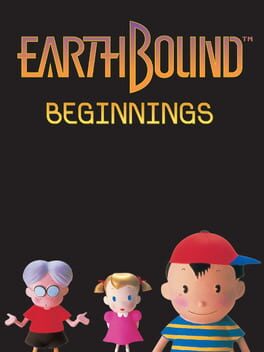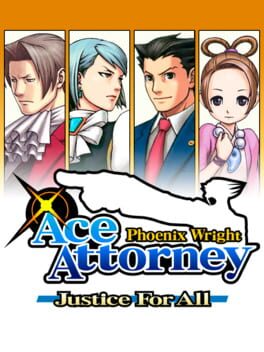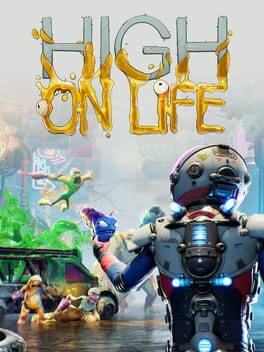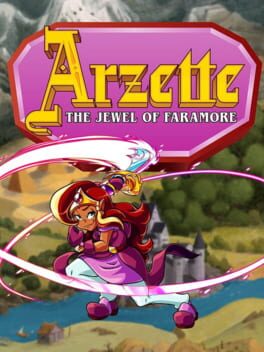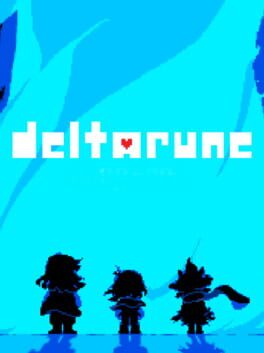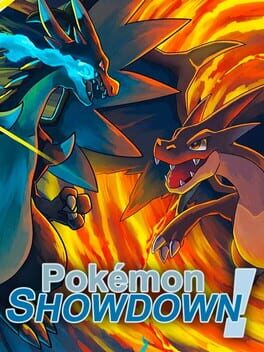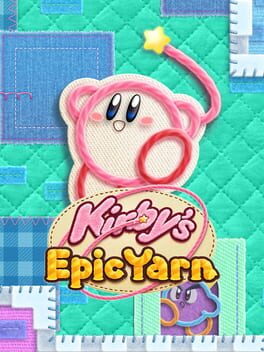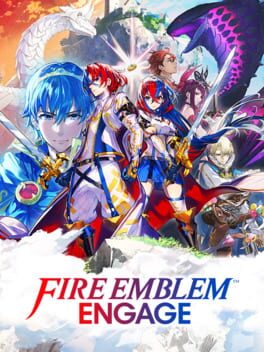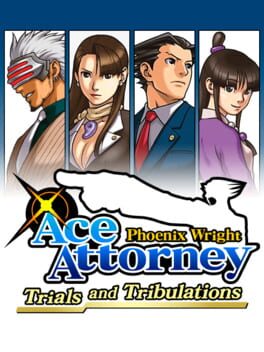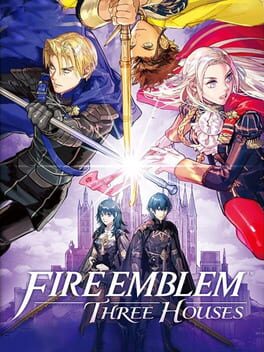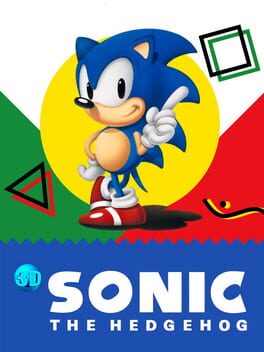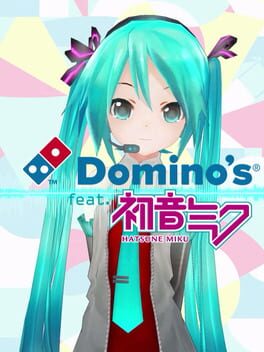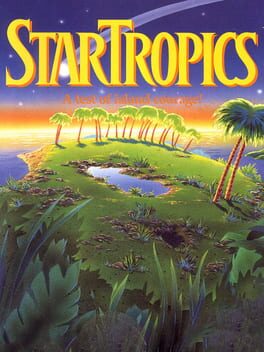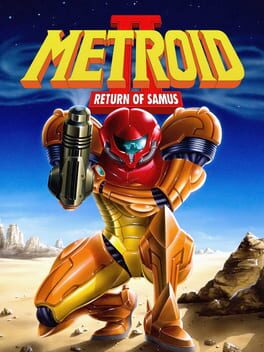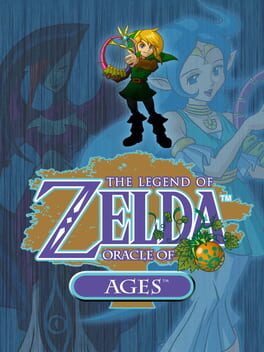Baird
Oh since this one exists too, I'll just mention how much I need Mother 3 to have an equally terrible name if they ever localize it (they won't). I need to see the Mother fandom squirm in agony getting told "Um, actually it's called Earthbound: The Ending". Not in a malicious way but just that it's funny to cause petty problems like that.
2022
I think it's really sweet that this whole game is just genuinely appreciative of the CDi games and the resulting YTP scene. It never punches down on its own source material or even defaults to some irony-poisoned take on the matter; it's just a continuation of games that, despite all reason, managed to resonate with people in their own weird way.
Gameplay wise this definitely shows in how the elevator pitch is pretty much just "CDi Zelda but playable". It's a rather short game that, crazily enough, isn't pushing any narrative boundaries, but the extra gameplay polish makes the quest hunting really palatable. One of my friends got into speedrunning it with some sequence breaks and has the world record so I'd say the world design has to be doing something right.
I know the main draw for most people is the meme factor, so I'd say it lands pretty well. Arzette is the distilled mythos of the CDi girlboss Zelda and her reactions to whatever arbitrary characters show up next are pretty good. The story isn't winning any awards, although Arzette's dad dying gives off some "overly verbose YTP lore" vibes which was fun. I don't think any of these people are going to end up iconic enough to where I'll see them singing Stronger than You next month but they were fine on their own. Really the only things that felt off were the blatantly sauceless Morshu and the one random Castlevania reference. Also I swear a Bubsy line snuck in somewhere.
Overall, I think it's a very cute game that provides a chance to reminisce on some old shitposty memories. Not really anything more than that, but I figure that was obvious from the get-go.
Gameplay wise this definitely shows in how the elevator pitch is pretty much just "CDi Zelda but playable". It's a rather short game that, crazily enough, isn't pushing any narrative boundaries, but the extra gameplay polish makes the quest hunting really palatable. One of my friends got into speedrunning it with some sequence breaks and has the world record so I'd say the world design has to be doing something right.
I know the main draw for most people is the meme factor, so I'd say it lands pretty well. Arzette is the distilled mythos of the CDi girlboss Zelda and her reactions to whatever arbitrary characters show up next are pretty good. The story isn't winning any awards, although Arzette's dad dying gives off some "overly verbose YTP lore" vibes which was fun. I don't think any of these people are going to end up iconic enough to where I'll see them singing Stronger than You next month but they were fine on their own. Really the only things that felt off were the blatantly sauceless Morshu and the one random Castlevania reference. Also I swear a Bubsy line snuck in somewhere.
Overall, I think it's a very cute game that provides a chance to reminisce on some old shitposty memories. Not really anything more than that, but I figure that was obvious from the get-go.
TBD
2011
2010
2023
I never want to play this game again and every time I see people arguing about it I actively regret ever associating with the fanbase just a bit.
The first playthrough was pretty fun, though. The world is pretty intriguing until you realize that what you saw on your first run was basically exactly what you get for the rest of them. I like the overall cast a lot, mainly the Golden Deer, even though Marianne as a character has been permanently ruined for me by weebs on one of those meme subs.
Overall it's kind of a weird game to rate because it feels like it's both deserving and undeserving of its accolades if that makes any sense. But I appreciate the scope so whatever. I would have liked it more anyways if I didn't cram 2.5 playthroughs in expecting they'd actually do something interesting with the multiple perspectives.
The first playthrough was pretty fun, though. The world is pretty intriguing until you realize that what you saw on your first run was basically exactly what you get for the rest of them. I like the overall cast a lot, mainly the Golden Deer, even though Marianne as a character has been permanently ruined for me by weebs on one of those meme subs.
Overall it's kind of a weird game to rate because it feels like it's both deserving and undeserving of its accolades if that makes any sense. But I appreciate the scope so whatever. I would have liked it more anyways if I didn't cram 2.5 playthroughs in expecting they'd actually do something interesting with the multiple perspectives.
So sad that ILCA peaked here before Game FrEAk made them create a garbage remake of some lowkey garbage Pokemon games. Another potential monolith of the industry was just consumed by corporate avarice as if it were a delicious Domino's TM Pizza. I cannot wait to order another Domino's TM Pizza as it will be more satisfying than any Pokemon offering in the entirety of gen 8. Yummy
1990
If there ever was some good to come out of the NSO service, it would be the new opportunity to find out just how much Game Boy games rule. After enjoying Wario Land 4, the Japanese app's catalog planning to include the never localized The Frog for Whom the Bell Tolls was the kick I needed to finally find it on the information superhighway, and it was a blast too. The misadventures of the Prince of Sable (Note that hurts me to write: the Assist Trophy guy that turns into a frog) got me thinking about how the console's library tends to stick out from a lot of Nintendo's usual lineup. I was originally going to write something longer about that game itself, pointing to how Game Boy games having a smaller technical scope, and perhaps a looser leash than their console counterparts, could enable them to explore more unique narratives. In particular, the role of the protagonist is oddly subversive across the library. The aforementioned and often incompetent Prince of Sable, the way in which the Mario Land series was supplanted by its own antagonist, or even the bittersweet nature of Link's quest in Link's Awakening. But I could never really get beyond that thesis statement. Sure, I could point out how telling it was that the Prince had to buy his own transformation items, but nothing ever came together in an interesting way.
Well, the latest game for the system that I played, Metroid II: Return of Samus, turned out to be the final piece of the puzzle I was trying to construct from my previous thoughts. This comes in part from how cruel and callous the whole journey felt, distorting the role of a video game hero well beyond the lighter satires of Mario and Zelda I had checked out before. It's a game where the only goal is to exterminate the whole species of the Metroids, a fact that even the UI makes inescapable with the everpresent Metroid counter. The act of fighting these bosses should characterize the whole experience, and the game chooses to make them rather static and predictable fights in which you blast them apart with missiles. Especially as I found the Varia Suit, these creatures who were supposed to pose an unknowable threat in the last game devolved into a pretty mindless chore. The original Metroid didn't have particularly interesting bosses, but the likes of Kraid and Mother Brain at least put up a fight. Here, what you would expect to be the highlights of the game end up being a curbstomp, and I think that's telling of the kind of story they were going for.
In games, combat often empowers and uplifts the player by having them overcome obstacles, marking your proficiency and domination over the game's systems. The Metroidvania genre in general loves to use your ever expanding arsenal to facilitate a power trip in locations where you once struggled. However, Game Boy games, running on hardware far less suitable to twitchy action than the contemporary SNES, often deemphasize the role a player has in fighting through their play space. Wario, for instance, does not get damaged by enemies at all in his second and third outings, as an effort to alleviate the problem of enemies bumrushing your small screen in the likes of Super Mario Land 2. Without the stakes of violence inflicted upon him, enemies often serve as minor inconveniences or puzzle solutions rather than something to gain instant gratification from besting. Likewise, the Prince of Sable's cartoon dustcloud slapfights are purely automated, doing more to characterize him as feeble yet well-meaning than as to reward the player. In Samus Aran's case, the rote boss fights deglamorize the violence she is committing towards the Metroids. It takes relatively little effort to blast these creatures out of existence, all the while hearing their singular cry of pain. The fights in the game's 3DS remake would contrast this simplicity, obscuring a lot of this violence behind complex aiming challenges and flashy cutscenes. Meanwhile, the barren fights of the original leave no room to hide the brutality of your hunt.
If the Metroids can't stop Samus, then nothing else stands a ghost of a chance. The wildlife of the planet are often just weird and in the way, and it's almost trivial to rip most of them to shreds. Even outside of the creatures, the whole space of SR388 feels incredibly disposable. Part of this owes to the linear structure, where you rarely have any reason to look back unless you're in dire need of a recharge station. Beyond that, though, SR388 itself is characterized as being irrelevant. Outside of long decayed Chozo temples, there's no culture that can be deemed as significant. There's hardly any backgrounds either, further decreasing the vibrancy of this world. Even the name is based on the convention we assign to (presumably) uninhabited celestial bodies in real life. Each bit of this design contextualizes this planet as an empty husk to run over in pursuit of your mission, with no need to regret anything caught in the crossfires. Sure, the Metroids seem to be relatively sustainable predators on the food chain of SR388, as most life does just fine staying out of their nests. But yet the political tensions of completely separate planets necessitate that this natural equilibrium gets demolished with no regard for any consequences. From what I've learned of this series through cultural osmosis, that will probably not go so well in the future.
Outside of the violence represented through gameplay, one thing that stands out about this adventure is the soundtrack. Or perhaps it would be more accurate to say soundscape, as when leaving the overworld theme, much of the songs devolve into discordant beeps. As these weirder tracks play in the areas more inhabited by the Metroids, they enhance the unease of hunting them down. The low health sound also stood out to me as having this unbridled annoying smoke alarm energy, droning on constantly and even warping in pitch based on health. I can't even put into words how these sounds get so... invasive in my own thoughts, the kind of thing that just makes me think way too much about what's going on. Even the ever sudden return back into the overworld track functions more like a gasp of fresh air than simply getting back to a better tune. It's certainly a hard sell, but I can't think of a better way to capture the soul-crushing mundanity of Samus's mission.
And that's probably how I'd describe Return of Samus as a whole. The Game Boy's low fidelity works full throttle to wipe away the heroics you would expect from most Metroid games, leaving you on your own to think about how it feels to go along with this extermination. I finally understand why there's been so much discussion of this game on the Internet, as it leaves so many interesting ideas up to interpretation. Even the final twist of sparing the baby Metroid feels so open ended as to the motive that it's hard to pin a particular meaning to it. It's no wonder that a game that accomplishes so much in such a small form factor stuck with people enough to be remembered so many years later, to the point of getting remade twice. That being said, I kind of doubt the ability of either successor to replicate the sorts of emotions I got from this game. While the work on both is admirable, I've already expressed my issues with Samus Returns, and AM2R seems to play much more in line with the sort of thrills you'd get out of Super Metroid. Throughout the years of the Metroid series and the discussion surrounding it, Metroid II: Return of Samus remains a one of a kind beacon of the Game Boy, and reflects everything I find special about the console's lineup.
Well, the latest game for the system that I played, Metroid II: Return of Samus, turned out to be the final piece of the puzzle I was trying to construct from my previous thoughts. This comes in part from how cruel and callous the whole journey felt, distorting the role of a video game hero well beyond the lighter satires of Mario and Zelda I had checked out before. It's a game where the only goal is to exterminate the whole species of the Metroids, a fact that even the UI makes inescapable with the everpresent Metroid counter. The act of fighting these bosses should characterize the whole experience, and the game chooses to make them rather static and predictable fights in which you blast them apart with missiles. Especially as I found the Varia Suit, these creatures who were supposed to pose an unknowable threat in the last game devolved into a pretty mindless chore. The original Metroid didn't have particularly interesting bosses, but the likes of Kraid and Mother Brain at least put up a fight. Here, what you would expect to be the highlights of the game end up being a curbstomp, and I think that's telling of the kind of story they were going for.
In games, combat often empowers and uplifts the player by having them overcome obstacles, marking your proficiency and domination over the game's systems. The Metroidvania genre in general loves to use your ever expanding arsenal to facilitate a power trip in locations where you once struggled. However, Game Boy games, running on hardware far less suitable to twitchy action than the contemporary SNES, often deemphasize the role a player has in fighting through their play space. Wario, for instance, does not get damaged by enemies at all in his second and third outings, as an effort to alleviate the problem of enemies bumrushing your small screen in the likes of Super Mario Land 2. Without the stakes of violence inflicted upon him, enemies often serve as minor inconveniences or puzzle solutions rather than something to gain instant gratification from besting. Likewise, the Prince of Sable's cartoon dustcloud slapfights are purely automated, doing more to characterize him as feeble yet well-meaning than as to reward the player. In Samus Aran's case, the rote boss fights deglamorize the violence she is committing towards the Metroids. It takes relatively little effort to blast these creatures out of existence, all the while hearing their singular cry of pain. The fights in the game's 3DS remake would contrast this simplicity, obscuring a lot of this violence behind complex aiming challenges and flashy cutscenes. Meanwhile, the barren fights of the original leave no room to hide the brutality of your hunt.
If the Metroids can't stop Samus, then nothing else stands a ghost of a chance. The wildlife of the planet are often just weird and in the way, and it's almost trivial to rip most of them to shreds. Even outside of the creatures, the whole space of SR388 feels incredibly disposable. Part of this owes to the linear structure, where you rarely have any reason to look back unless you're in dire need of a recharge station. Beyond that, though, SR388 itself is characterized as being irrelevant. Outside of long decayed Chozo temples, there's no culture that can be deemed as significant. There's hardly any backgrounds either, further decreasing the vibrancy of this world. Even the name is based on the convention we assign to (presumably) uninhabited celestial bodies in real life. Each bit of this design contextualizes this planet as an empty husk to run over in pursuit of your mission, with no need to regret anything caught in the crossfires. Sure, the Metroids seem to be relatively sustainable predators on the food chain of SR388, as most life does just fine staying out of their nests. But yet the political tensions of completely separate planets necessitate that this natural equilibrium gets demolished with no regard for any consequences. From what I've learned of this series through cultural osmosis, that will probably not go so well in the future.
Outside of the violence represented through gameplay, one thing that stands out about this adventure is the soundtrack. Or perhaps it would be more accurate to say soundscape, as when leaving the overworld theme, much of the songs devolve into discordant beeps. As these weirder tracks play in the areas more inhabited by the Metroids, they enhance the unease of hunting them down. The low health sound also stood out to me as having this unbridled annoying smoke alarm energy, droning on constantly and even warping in pitch based on health. I can't even put into words how these sounds get so... invasive in my own thoughts, the kind of thing that just makes me think way too much about what's going on. Even the ever sudden return back into the overworld track functions more like a gasp of fresh air than simply getting back to a better tune. It's certainly a hard sell, but I can't think of a better way to capture the soul-crushing mundanity of Samus's mission.
And that's probably how I'd describe Return of Samus as a whole. The Game Boy's low fidelity works full throttle to wipe away the heroics you would expect from most Metroid games, leaving you on your own to think about how it feels to go along with this extermination. I finally understand why there's been so much discussion of this game on the Internet, as it leaves so many interesting ideas up to interpretation. Even the final twist of sparing the baby Metroid feels so open ended as to the motive that it's hard to pin a particular meaning to it. It's no wonder that a game that accomplishes so much in such a small form factor stuck with people enough to be remembered so many years later, to the point of getting remade twice. That being said, I kind of doubt the ability of either successor to replicate the sorts of emotions I got from this game. While the work on both is admirable, I've already expressed my issues with Samus Returns, and AM2R seems to play much more in line with the sort of thrills you'd get out of Super Metroid. Throughout the years of the Metroid series and the discussion surrounding it, Metroid II: Return of Samus remains a one of a kind beacon of the Game Boy, and reflects everything I find special about the console's lineup.
